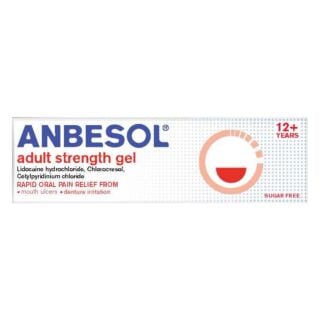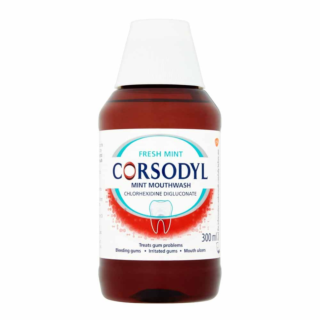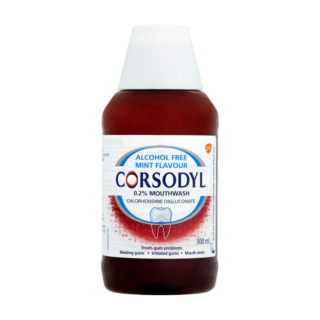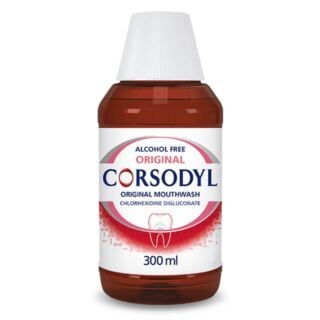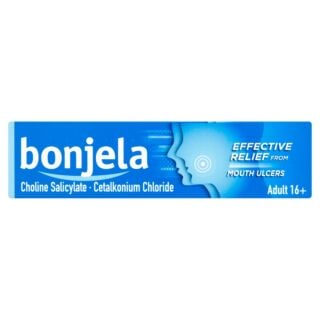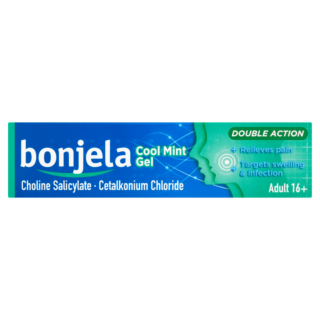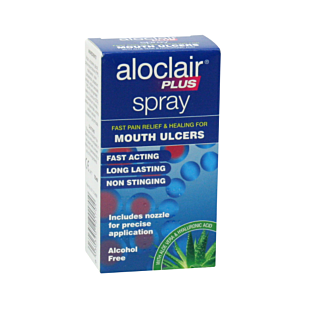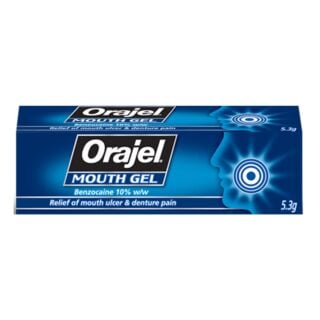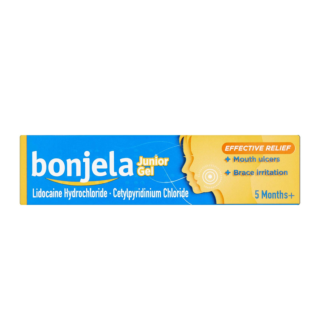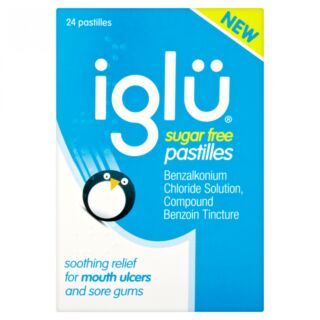Why Do I Have a Mouth Ulcer?
Mouth Ulcer Causes & Treatment
Have you ever bit into a delicious snack only to experience one of the most extreme pains that you can imagine?
Okay, maybe I’m being a little dramatic, but seriously, how do those little white sores in your mouth cause so much pain?!
Well, those teeny, tiny sores are mouth ulcers, and although they may look harmless, the pointless annoyance they can cause is real.
That’s why we’re going to look at mouth ulcers in detail and see what we can do about them!

What are mouth ulcers (canker sores)?
Mouth ulcers, which are also known as canker sores, are pleasant little sores that appear in your mouth and cause all kinds of irritation until they’re gone.
They’re usually harmless and aren’t contagious, but they can be seriously irritating and painful while you wait for them to heal.
Mouth ulcers appear on the insides of your mouth or lips, on your gums, or on your tongue and they look like little round white, yellow, or grey sores.
You’ll usually remember that your mouth ulcer is there when you try to eat, drink, talk, or brush your teeth and annoy that little sore, causing a pain that makes you want to give up on using your mouth altogether until it’s healed.

What causes mouth ulcers?
Mouth ulcers don’t have one direct cause and sometimes they can just appear because your body feels like you’re enjoying your life a bit too much.
Okay, that’s not true, but what’s going on in your body can cause mouth ulcers, especially if you’re going through hormonal changes like pregnancy, menopause, puberty, or your menstrual cycle.
You can also experience mouth ulcers if you damage the insides of your mouth, which can happen if your dentures, braces, or fillings don’t fit well, or if you simply bite down on the inside of your cheek by accident – as if the pain from the bite wasn’t enough!
Some of the other common causes of mouth ulcers include:
- Stress and anxiety
- Eating certain foods, e.g. hard or spicy foods, chocolate, coffee, peanuts, strawberries, cheese, tomatoes, wheat flour
- Using toothpaste that contains sodium laurel sulphate
- Quitting smoking
- Viral infections
- B12 or iron deficiencies
- Some medications or treatments, e.g. ibuprofen, beta-blockers, chemotherapy, radiotherapy
What is the best treatment for mouth ulcers?
You usually won’t need to treat a mouth ulcer, as they’ll clear up by themselves within a couple of weeks, but there are some treatments you can pick up to ease your pain until the ulcer is gone.
These treatments come in the form of mouthwashes, gels, sprays, and lozenges, so you can choose which one’s the best for you.
Antimicrobial Mouthwashes
Antimicrobial mouthwashes help to kill bacteria in your mouth that can aggravate your mouth ulcer.
Getting rid of these bacteria can help your mouth ulcer to heal more quickly and can help to prevent infection.
Considering that there are around 500 – 1000 different types of bacteria in your mouth alone, this one could be a real help when it comes to helping that ulcer to heal!
Pain Relief
Painkillers are some of the most popular treatments for mouth ulcers, as the most annoying part of having an ulcer is the pain!
There are lots of different types of pain relief that can help to soothe your canker sore as you’re eating, drinking, or anything else you might do that involves using your mouth.
This type of treatment is available in mouthwashes, gels, sprays, and lozenges, so pick your favourite and let it get to work numbing that annoying sore.
Corticosteroid Lozenges
Corticosteroid lozenges treat your mouth ulcer by reducing swelling and inflammation in the area, which can also help to reduce pain.
As this treatment contains steroids, you’ll only be able to get this type of treatment on prescription from your doctor, so keep that in mind if you’re planning on using it.
To get the best from these lozenges, you should start to use them as soon as your mouth ulcer appears so they can get cracking on that swelling.
Although lozenges are the most popular form of corticosteroid treatments for mouth ulcers, you could be prescribed a paste, tablet, spray, or mouthwash instead.

Are there any home remedies for mouth ulcers?
There aren’t any home remedies for mouth ulcers, but there are a few things you can do to keep yourself from irritating the area and slowing down the healing process.
For starters, avoid eating things that can irritate your ulcers, such as hot, hard, spicy, salty, or acidic foods and drinks.
When you’re drinking cool drinks, it can also help if you use a straw to keep the drink off your ulcer.
When it’s time to brush your teeth, use a soft toothbrush and switch to a toothpaste that does not contain sodium lauryl sulphate, as both things can help you to avoid irritation.

How can I prevent mouth ulcers?
You’ll all be super happy to know that mouth ulcers aren’t always preventable – good news, right?
Unfortunately, as mouth ulcers can be caused by things like hormonal changes or even just your genes (thanks, Mum and Dad), there isn’t a sure-fire way to keep yourself from ever having to experience the annoyance of a mouth ulcer ever again. If there was, we’d all be using it!
The best thing you can do to keep mouth ulcers at bay is to avoid eating foods that you know trigger your mouth ulcers, that is if you can bear to give up things like coffee, cheese, and chocolate!
Avoid chewing gum, as this can not only irritate mouth ulcers, but it may cause some of that accidental cheek chewing that causes mouth ulcers in the first place.
Trying to reduce your stress and anxiety can also help to reduce your chances of getting a mouth ulcer, especially if you find that your ulcers pop up just before an exam or a big meeting at work.
Mouth ulcers in children
Mouth ulcers can happen to people of all ages, so parents rejoice, your little bundle of joy may be crabby for the next 2 weeks as they recover from a mouth ulcer.
Mouth ulcers are as harmless in children as they are in adults, so you’re both just going to have to get on with it and try to keep the irritation to a minimum – and isn’t that just parenting in a nutshell?
There are some pain relief treatments that can be used for children, including Bonjela Junior and some Iglu products, so at least you can ease their pain as they wait for the sore to heal.
I’ve got recurrent mouth ulcers – what should I do?
If you keep getting mouth ulcers over and over again and they’re just driving you up the wall then the best thing you can do is go to see your doctor or dentist.
There may be an underlying cause that’s bringing that mouth ulcer back time after time, so you’ll need to get that sorted if you want to say goodbye to those mouth ulcers for good.
For example, if your mouth ulcers are caused by a viral infection or a vitamin deficiency, your doctor should be able to prescribe a treatment that sorts out that underlying issue and sends your mouth ulcers packing in the progress.

When should I see a doctor?
As you’ve just read, you should go and see your GP if your mouth ulcers keep coming back over and over, but there are a few other red flags that should trigger a doctor’s visit.
For starters, if your mouth ulcer sticks around for longer than 3 weeks then you should go and get it checked.
Although canker sores are usually harmless, a long-lasting sore can be a sign of mouth cancer, so you should get it checked out right away.
If your mouth ulcer becomes very swollen, red, or painful then you may be dealing with an infection and should go to see your doctor to get some treatment, which may include antibiotics.
Well, that’s all there is to know about those annoying little mouth ulcers and what you can do to stop them being so irritating.
Remember, sometimes, you’re going to get a mouth ulcer no matter what, so its best to just grin and bear it… Or keep your mouth shut and bear it if grinning makes that stupid mouth ulcer all sore again!

